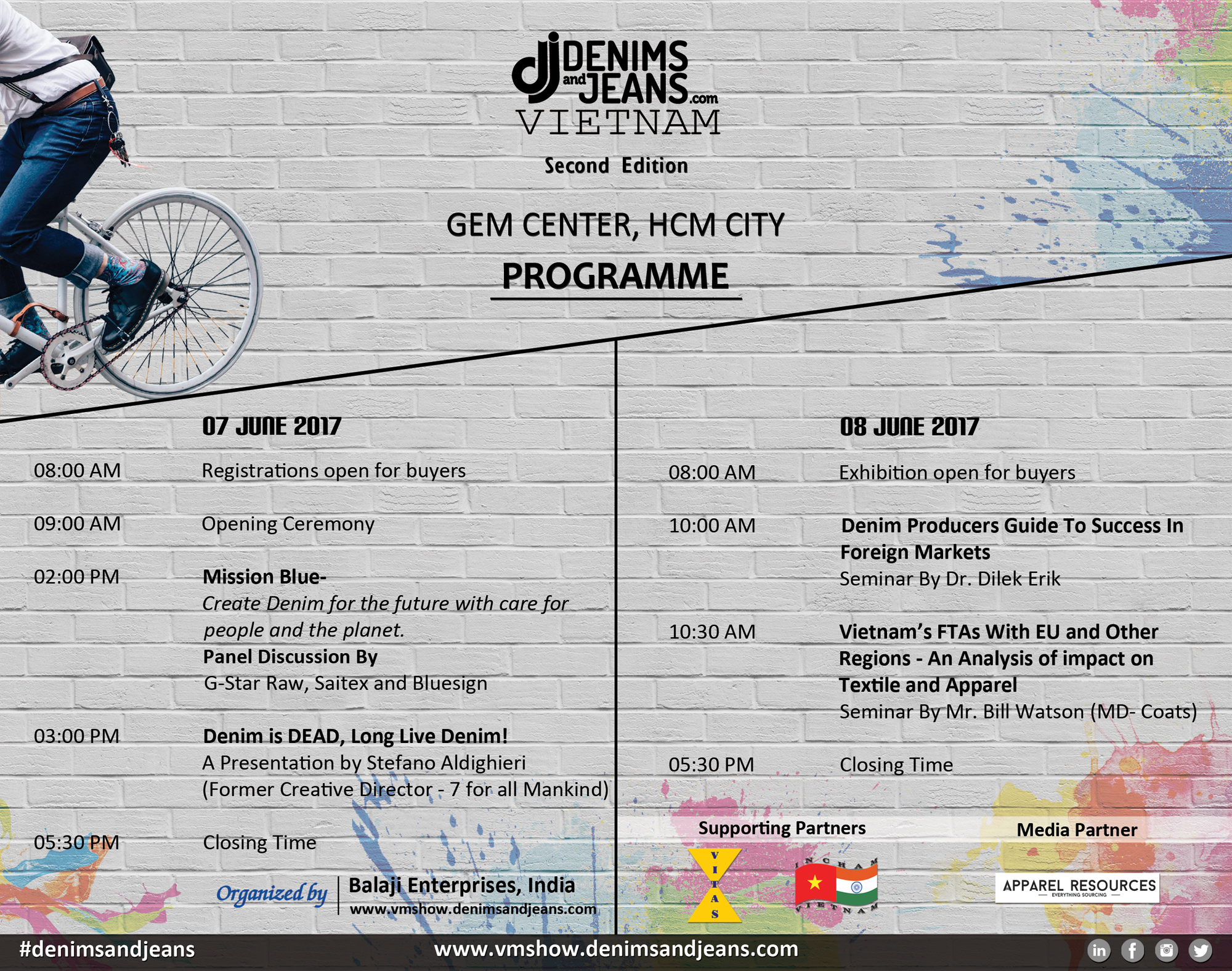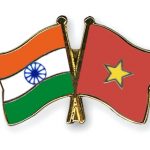About 80 European brands from the fashion and accessory, food and beverages , perfumes , interior design etc shall come under the banner of Eurosphere to HCMC on June 16 & 17 in anticipation of EU- VIETNAM FTA becoming active in early 2018. Eurosphere 2017 is a new concept trade event dedicated to bringing various European quality products to the Vietnamese and Southeast Asian market. It was introduced in the context of the new Free Trade Agreement between the EU and Vietnam (EVFTA), Vietnam being the second country in the ASEAN, after Singapore, to sign such an agreement. With strong expectations of the FTA being effective in early 2018, the European companies have started to explore the Vietnamese market in fashion and various other categories .
Vietnam’s trade with the EU in the first 11 months of 2016 totalled $40.76bn, according to Vietnam Customs. The bloc was Vietnam’s second-biggest export market, worth $30.72bn (up 9% on the same period of 2015, and accounting for 19.2% of the total), and its fourth-biggest source of imports ($10bn, up 9.7%, and 6.4% of the total). Machinery and appliances accounted for just over half of Vietnam’s exports to the EU, 50.1%, with telecommunications equipment comprising 33.5% of all exports. Footwear and hats accounted for 12.1%, and textiles and textile articles 10.4%. Vietnam’s imports from the EU, meanwhile, included machinery and appliances (27.4% of the total), chemicals (17.8%) and manufactured goods (11.3%).
Vietnam’s exports of textile, clothing and footwear to the EU are expected to more than double in 2020 as a result of the EVFTA, according to law firm Duane Morris.
EVFTA negotiations concluded in December 2015. To realise its benefits, Vietnam and the EU agreed to quicken the ratification and bring it into force in 2018. The time is not much for garment and textile enterprises to prepare till then.Vietnam’s textile and garment market share in the EU is low. By the end of 2015, Vietnam’s textile and apparel products accounted for only 1.9 per cent of the share in the EU since they are imposed a high tax rate of 8 – 12 per cent. This reduces the competitiveness of Vietnamese textiles and garments. All textiles and garments exported to the EU will be entitled zero tax per schedule to be announced soon, giving a huge opportunity for Vietnamese textile and apparel companies to boost their market shares.
Vietnamese garment exports to the EU is currently subject to a tax rate of 12% on Apparel, 11.7%; seafood, 10.8%; and footwear, 12.4%. The tax rates have posed a formidable barrier to the competitiveness of Vietnamese goods. This is particularly true in the circumstance that the EU has signed FTAs with many countries which are Vietnam’s direct competitors. A free trade pact with the EU will be a handy tool for removing this barrier. An FTA will enable these imports to be eligible for a 0% tax rate, which is expected to boost export sales to this vast market by 7-21% a year. Meanwhile, this pact will also cut down the import tariff currently slapped by the EU on Vietnamese garments from 12% to 0%. The zero tariff will substantially enhance the competitiveness of garment exports—Vietnam’s export spearhead—and is likely to bolster sales by 20% annually.
Goods produced in Vietnam using plenty of materials imported from abroad sometimes fail to meet stringent requirements of local content and thus fail to enjoy preferences given by the FTAs in question. The EU, on the contrary, often accepts a flexible regime which can be applicable on case-by-case basis. In a recent workshop on FTA between the EU and Vietnam, Le Van Dao of the Vietnam Textile and Apparel Association maintained that regarding this industry, its benefits and export growth will depend largely upon the agreements on Rules of Origin set in the FTA documents. In the case of the previous FTAs Vietnam has signed with Japan or South Korea, the local export garment industry has proceeded at a snail’s pace on account of meticulous certificates of origin. Learning from experience, the Vietnamese industry is interested in more relaxed rules of origin which is under consideration of the EU .
On the whole, the FTA will bring profound changes in the Vietnamese export industry and will more than cover any negatives originating from the TPP cancellation as EU is again a huge and more quality conscious market with better pricing and realisation than US.
Image credit: vir.com.vn
—————————————————————————————————
Also don’t forget to mark the dates for Denimsandjeans Vietnam ! Click to get invitation !





